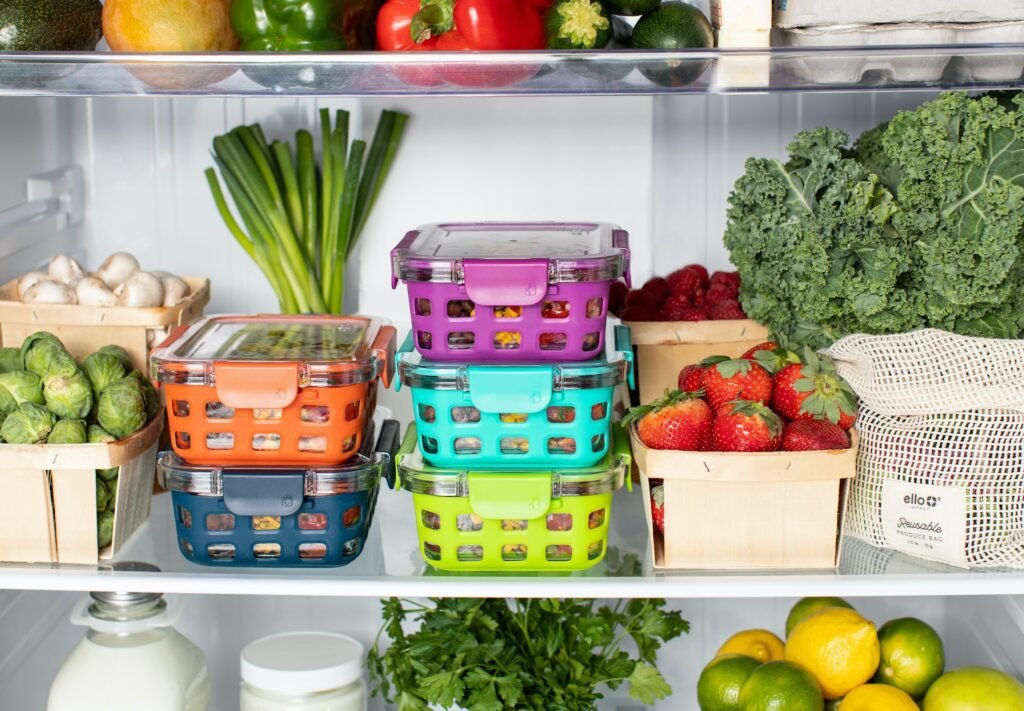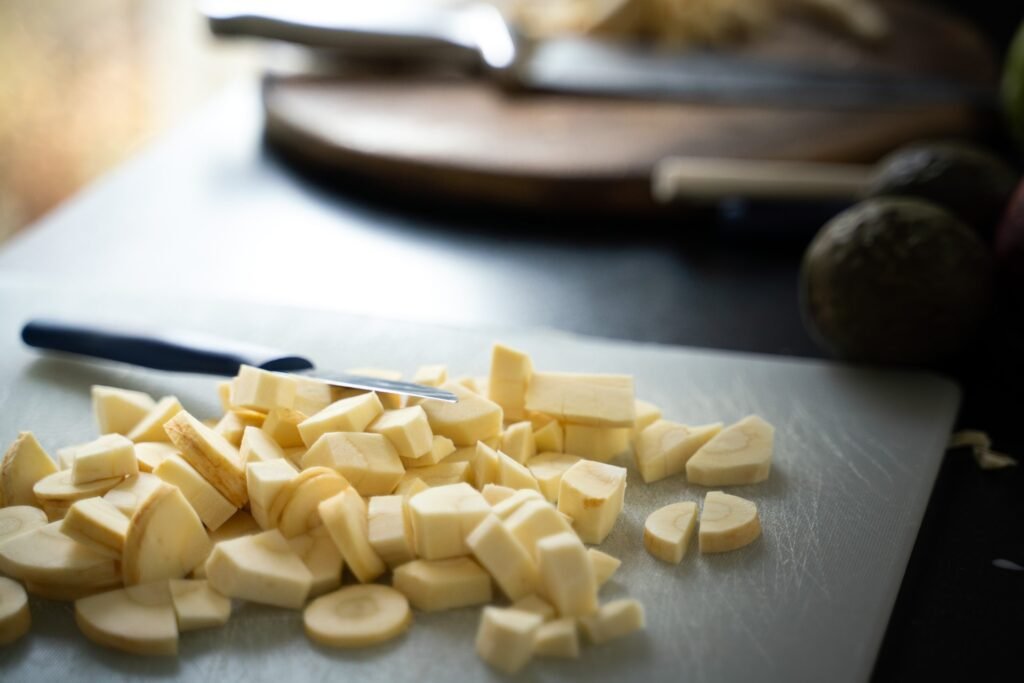Can you freeze foods to save on waste?
Whether you’re trying to save waste from the weekly grocery shop, looking to avoid throwing out leftovers from a family knees-up, or just keen to store ingredients from bulk recipes, it is important to know what foods you can freeze successfully to save on waste. Here at Savvy Dad HQ, we’ve transitioned to using cost-effective meal delivery subscriptions, but what foods can you freeze to save on waste if you’ve got leftovers or you’re planning ahead?
Whether you’re looking to make vegetables from a roast go further by freezing 9like those leftover parsnips at Christmas) or just looking to find out if it is safe or possible to freeze certain foods, we’ve put together a brief guide to help save on waste in the kitchen. Yes, we’ve thought about whether you can freeze custard, pepperoni, ricotta or goat’s cheese, oat milk, couscous, almond milk and even brie! It’s a unique list compiled from those most searched for online over the past few years. So, here we go…
Can you freeze goat’s cheese?
Yes, you can freeze goat’s cheese for up to 6 months with very little effect on the flavour. Like most similar cow’s milk-based products, Goat’s milk can be easily from if stored in a suitable wrapping or container. The suggestion we would make is to wrap your surplus cheese tightly in cling film and then place it in a ziplock bag with the date of freezing on the outside. When freezing goat’s cheese it is important to know that flavours remain intact the best when the cheese is frosted and eaten within 2-3 months, although you can keep it frozen for up to 6 months in total.
If anything, the taste and aroma of the goat’s cheese will get stronger. However, if you see signs of mould appearing, the goat’s cheese is ready for the bin and not salvageable.
What about Brie, can you freeze it successfully?
We know what you’re thinking. Leftover cheese? When does that happen? But if you’re entertaining and have had to cancel or you over-catered for something, knowing if you can freeze cheese like ricotta and brie is important.
Brie can be frozen but due to the nature of this soft, silky cheese, it will not always remain as you expect. The soft nature of the brie cheese will be highly affected by the freezing process and therefore it will not give the same experience in terms of texture when defrosted. If you’re planning to use the brie within cooking, such as within a soup, brie pastry dish or grilled in a burger or bacon roll, you’ll likely not notice. However, if you’re planning to enjoy your brie as part of a nice cheeseboard with a decent sherry, port or wine, you’ll likely be displeased with the results after defrosting.
In order to preserve any of that silky, creamy texture mentioned earlier brie should be wrapped very tightly to avoid as much drying out in the process as possible. Again, consider carefully the 2-3 months being best for a piece of cheese in the freezer. Our suggestion is to only use brie that has been frozen for cooked meals, it’s ideal if frozen in slices and used for a tasty grilled brie on toast as it can be cooked straight from frozen.
Can other soft cheeses like ricotta be frozen?
Ricotta can be frozen, although it is similar to other soft cheeses and behaves in a similar way when freezing which often affects its texture. If you have leftover ricotta that is in sealed pots or cartons, these can be placed straight into the freezer. However, if you’ve opened the ricotta, you need to make sure you wrap it tightly in foil or clingfilm in order to keep the maximum amount of air out when freezing. Ricotta has a very high moisture content and this means that the water within will potentially form ice crystals when the ricotta is frozen. This will cause the ricotta texture to change in nature making it more firm and crumbly – not an issue if using it directly in cooked recipes like a nice spinach and ricotta pastry or such. Again, stick to the 2-3 months to avoid huge changes in texture and quality.

Can you freeze Pepperoni or chorizo?
Pepperoni has bas specifically designed to extend the shelf life of the constituent parts. This long-life quality is down to the preservative ingredients used and the curing process. As long as you’re freezing your leftover pepperoni before the use-by date on the product, it should freeze fine. If you’ve opened the packet or sliced your pepperoni already, it’s important to check that the pepperoni doesn’t show any signs of changing texture such as browning, curling, or even becoming slimy.
Just like some of the cheeses that you can freeze mentioned earlier, it’s worth considering how you’re likely to be using the pepperoni before freezing it. If it’s to be used to top pizzas, within a pasta sauce, or simply within a toasted sandwich, then chopping it into small 1-2cm thin squares or slices means it will defrost more easily. Always give the pepperoni 24 hours in the fridge to defrost and never refreeze previously frozen pepperoni.
Just like pepperoni, fresh chorizo can also be frozen. Just make sure you’re using the standard rule of wrapping the meats in clingfilm to keep as much air out as possible and ensure that you’re reducing the risk of the chorizo being affected by freezer burn. 3 months, is the maximum time for chorizo to be stored in the freezer and it can be defrosted in a fridge with the 24-hour rule. Do not refreeze previously frozen chorizo, just like with other cured meats.
Can dairy free alternatives like oat or almond milk be frozen?
Dairy free alternatives to cow’s milk like oat, almost, soya, and pea are quickly becoming popular in the mainstream market in the UK. So much so, that many marketing and brand campaigns are subsidising a big push on cashback deals to buy these products in supermarkets. Apps like GreenJinn, Shopmium and Checkout Smart are frequently advertising up to 80% cashback on brands like Mighty M.lk, making these long life alternatives cost-effective to buy in bulk. However, if you do have left over oat or almond milk, this can be frozen.
While you can freeze almond milk and oat milk, it is important to know that the texture may change. The thawing process may cause a slightly grainy texture. This is not always an issue. For example, if you’re thawing frozen oat or almond milk to use in baking, you’ll find there’s hardly anything noticeable. It’s easier to pick up on the texture change when used as milk on cereal or in drinks.
Finally, one of the biggest queries is whether you can freeze vegetables left over from your Sunday roasts. Some items are easily made from scratch for roasts like Yorkshire puddings, so you’ll not need to use valuable freezer space on them. However, many families buy more vegetables than they need for a roast as the temptation is to buy bulk bags rather than considering the number of people they’re catering for. When this happens, it’s useful to know what vegetable from a roast you can freeze.

Can you freeze roasted vegetables like parsnips?
Yes, you can freeze leftover parsnips from your roast prep. In order to freeze raw parsnips, it’s best to cut them into chunks or batons and blanch them first in boiling water for 2-3 minutes. once they’ve cooled, add them to an air-tight bag or container and store them for up to 3 months. There’s no need to peel the parsnips, just make sure they’re clean before blanching.
Whilst it’s not essential to blanch the parsnips (or any other roasted veg you’re looking to freeze), the process can stop the breakdown of food due to enzymes and make the vegetables taste better for longer – again reducing food waste.
This post was featured by Twinkl in their Cost of Living Crisis blog


Interesting – I never think about freezing things like this!
In my household we tend to buy things near its expired date as they tend to be heavily discounted. But it does mean we tend to freeze everything. However what I never knew is that you can freeze cheese and non diary milks. Very interesting especially when I do a lot of baking, sweet and savoury
I am surprised how much one can actually freeze. Fab article.
Great ideas to save some money and time as well!
Never knew you could freeze cheese
I found this article very useful I’ve always wondered about freezing cheese but never have I certainly will be in the funture
Interesting article, I never knew cheese could be frozen
Great tips for saving money and cutting down food waste